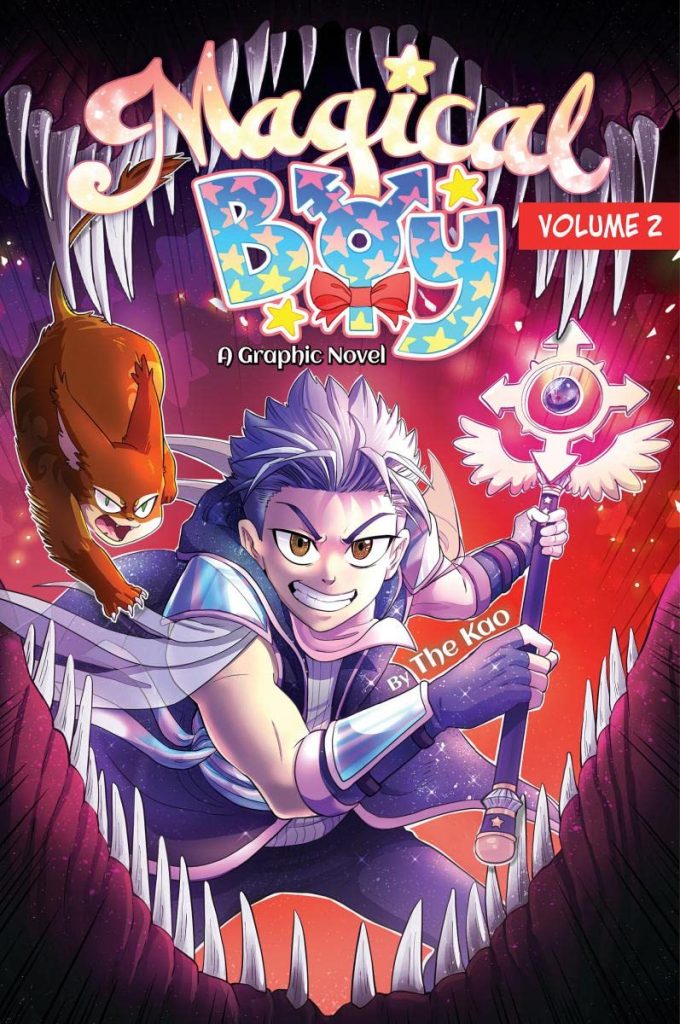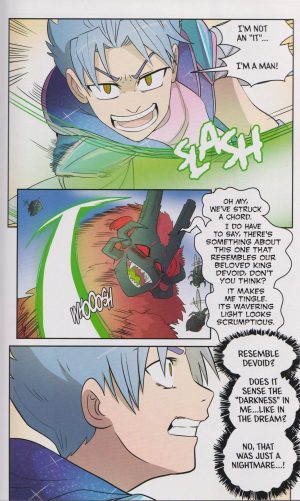Review by Frank Plowright
Max is the latest inheritor of a dynastic magical power passed down through generations of women. Except he’s a transgender boy, whatever his mother might wish. She’s big on duty and conformity, and harkens back to her own days ridding Earth of spider creatures that seep through dimensional cracks and feed on toxic feelings, becoming larger and more dangerous.
Despite treating Max’s gender issues seriously, The Kao takes a light tone overall. By the end of Volume 1 Max had absorbed a considerable amount about his new role, acquired a circle of trusted friends, and learned how to shape the magic so that he was no longer confined to a frilly dress in his other identity. Less positively, three gates have been opened, so it’s only a matter of time before the King of Darkness builds the energy to break through them to Earth.
The core moral issue is the beasts thriving on negative energy, and the greatest source of it being Max’s mother refusing to accept who he is, so impacting on his protective capabilities. That being the case, it’s his friends providing support.
Over Volume 1 Kao’s method of supplying information was piecemeal and in big blocks, but new information is provided with greater nuance here, with the auras Max sees now explained. Kao also gives greater depth to Max’s friends, introducing their parents and what weighs them down. Most importantly Kao draws a connection between the doubts others place in Max’s mind and his effectiveness at keeping squidgy insect creatures at bay.
Everything being drawn at the same high level of intensity reduces the effectiveness of the dire situations when emotional turmoil really peaks, but there’s greater imagination about the greater threats Max comes across in this volume. When Devoid is finally seen, she’s an imposing spiky creature with a modified goat skull as a head, and the creatures beforehand are based on insects, but grim, scary forms.
Kao delivers an unusual ending prompted by Max witnessing events of the distant past, and that connecting deeply with what he’s been going through. This is all the more surprising because while Magical Boy is hardly short on action entertainment, for all the visual emoting, the actual depth is minimal, yet the the explanations hit home. In the end Magical Boy hammers in the message that people need to listen to what others are trying to tell them and if a few people pick up on that to make life easier for others, then it’s job done.





